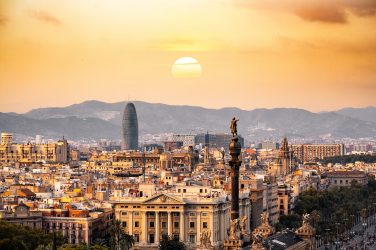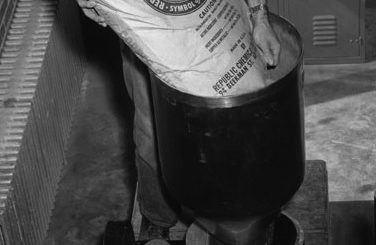“Wayne Rooney!”
These are the two words that most often greet me on my travels when I mention where I’m from. Although I patiently explain that he’s actually from Liverpool, I’ve got to admit that it is a nice feeling to know that your hometown is known beyond the confines of national borders, at least to football fans, that is.

Yet these advantage of immediate recognition can also be a drawback. Manchester is more than its most famous team, and I’m not talking about Manchester City FC, the noisy neighbours in blue from across town.

Granted, Manchester is not your “normal” holiday destination. It doesn’t boast any picturesque ski resorts or white sandy beaches (or much sun at all actually). As for world-recognised landmarks, there is a cathedral and some other old buildings, but they’re not particularly special. In fact, besides football its most recognised contribution to world history is the birthplace of the industrial revolution; the dirty, sweaty starting motor of Victorian Britain’s economic engine. Hardly a cruise ship in the Caribbean is it?
However, that is where you are wrong. Well, I mean you’re correct in thinking that it’s not going to be anything like a Caribbean cruise. But what are you, eighty? Let me tell you why Manchester is worth visiting, right now.
Culture
Out of the shabby backstreets of Manchester and its surrounding suburbs came some of the most important music of its generation. Joy Division & New Order, the Smiths, the Happy Mondays, the Stone Roses, Oasis…the list could go on. And while musical taste has moved on somewhat from swaggering lads with guitars, the city remains a musical hub, well-endowed with live music venues, clubs and a little bit of something for everybody.

Other than music, the city has developed a large range of other cultural offerings. Chief among them is the Manchester International Festival, a biennial celebration of Manchester’s musical, artistic and theatrical scene that opens its doors to the world. This year’s offering includes a new musical from Damon Albarn (of Blur) and some deliciously subversive new comedy from The Invisible Dot Cabaret. The festival also hasn’t forgotten its working class roots, offering cheaper tickets for local residents on a lower wage.
Politics
The city has played a critical role in the history of Great Britain, often as an important counterweight to the London-based establishment. As Labour Councillor and Manchester’s representative at the European Committee of Regions, Kevin Peel, explains, “Manchester is a city of firsts. The birthplace of the worldwide co-operative movement. The centre of the battle for votes for women. Home of the first meetings of the Independent Labour Party and the Trade Union Congress.”
Not only that, but it is also leading the charge of cities trying to wrestle power from a notoriously centralised British government. Kevin elaborates, “This signifies the biggest ever shift of power from the national to the local level and Manchester as ever is leading the way.”
“Manchester is a city of firsts. The birthplace of the worldwide co-operative movement. The centre of the battle for votes for women. Home of the first meetings of the Independent Labour Party and the Trade Union Congress” – Kevin Peel, Local Councillor
Recently saved from slashing cuts to its budget by the Conservative government (you can imagine the conspiracy theories), this proud history of activism can be visited at the fantastic People’s History Museum, where you can find fascinating histories of the Labour movement and its precursors as well as a one-of-a-kind collection of hand-made trade union banners.
Greenery
Whilst Manchester itself is a rough, gritty, post-industrial town, some of the most beautiful and underappreciated areas of natural beauty that Great Britain has to offer are on its doorstep. The rugged North Wales coastline, the atmospheric hills of the Peak District and the spectacular landscapes of the Lake District are all within one hour’s train ride.
History
Reasonably well-known is the fact that the industrial revolution ignited in the cotton mills of Manchester. Less well-known is the fact that Marx and Engels began writing the Communist Manifesto here, in Chetham’s Library. In fact, Engels was so dismayed by the squalor of the working classes here in Manchester and other English industrial cities that he thought the worker’s revolution would actually originate here!

Unfortunately (for them, but maybe not for the general welfare of Manchester) they did not bank on the stoic nature of the British people and their commitment to reform. The revolution therefore happened elsewhere, but you can still visit the library – the oldest of its kind in Britain – and even sit at the table where they supposedly wrote those famous first lines.
Aside from its association with one of the more sinister movements of the twentieth century, Manchester also spawned one of its most revolutionary. Emmeline Pankhurst, leader of the famous Suffragette group demanding votes for women was also born here. Tucked away behind the modern St. Mary’s hospital near the university you can still visit the house where she spent a large part of her life before taking the fight to London. It has now become a shrine to feminism in all its forms and is well worth a visit.
The People
Much like their suffering forefathers, modern Mancunians are a hardy bunch. It’s clear that the working class spirit of togetherness and community still plays a big role in the city’s psyche. They are also some of the friendliest people around. I am always pleasantly surprised when going back there from either Berlin or London, where you’re lucky to get as much as a smile. In Manchester, just don’t be alarmed if the lady in the bakery calls you ‘love’ or ‘me duck’ as you order your barm cake (basically a bread roll) – it’s all part of the charm.
Food
You think I’m joking? Alright, so Britain is not famous for the variety and quality of its regional cuisine. However, what we lack in our indigenous palette is more than made up for by our openness to other cultures. Most prominently you will find incredible Chinese food in China Town (the third largest in Europe) and then there’s Manchester’s famous “curry mile” – a stretch of road just past the university offering tasty and excellent value food from all across South Asia.
And if all that doesn’t convince you…
…well, there’s always the Manchester United stadium tour.
The Manchester International Festival takes place on the 2-19 July this year. Further details and information on how to buy tickets can be found here: http://www.mif.co.uk/
The People’s History Museum is open Monday to Sunday from 10am to 5pm and is free for all. Details about specific exhibitions can be found here: http://www.phm.org.uk/?mobile_view=NO
Chetham’s library is open to readers and researchers but as it is part of a functioning school you will have to book an appointment: http://www.chethams.org.uk/visiting.html
The Pankhurst Centre is free to visitors and holds regular events based around feminist causes: http://www.thepankhurstcentre.org.uk/
Cover photo: Pablo Fernandez (Flickr); Licence: CC BY-NC-ND 2.0







